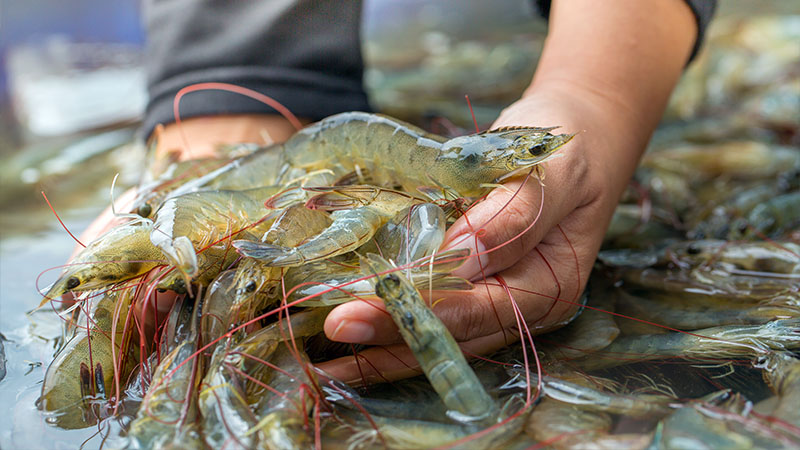Exclusive content

A recent investigation by the Associated Press (AP) has cast a harsh light on labor practices in the global shrimp industry, accusing major Western supermarkets of driving a race to the bottom in working conditions across the supply chain. The report, conducted by non-governmental organizations (NGOs), focuses on the three largest shrimp-producing nations—India, Vietnam, and Indonesia—alleging the deepening exploitation of workers.
Wages Slashed, Labor Exploited
As Western supermarkets pursue ever-lower wholesale prices, shrimp producers have responded by cutting labor costs, resulting in significant wage reductions. The report finds that wages in shrimp-producing countries have dropped between 20% and 60% since pre-pandemic levels. This decline has led to rampant underpayment, unpaid overtime, and a precarious existence for many shrimp workers.
India, Vietnam, and Indonesia together supply roughly half of the shrimp consumed in major markets such as the United States, European Union, United Kingdom, and Japan. However, despite the scale of these operations, workers often find themselves earning less than the minimum wage. Reports of child labor, debt bondage, and unsafe working environments have also been claimed.
Retailers Deny Responsibility
The report links these labor abuses to several high-profile retailers, including U.S. companies like Target, Walmart, and Costco, as well as British and European chains like Sainsbury’s, Tesco, Aldi, and Co-op. Many of these retailers deny any direct responsibility for the conditions under which the shrimp is produced. Instead, they point to ethical sourcing policies and independent certification schemes as proof of their commitment to fair labor practices.
Switzerland’s Co-op, for example, reiterated its “zero tolerance” policy on labor law violations, while Germany’s Aldi stressed the role of independent auditors. British supermarket chain Sainsbury’s, along with the British Retail Consortium, defended their sourcing practices, emphasizing that they prioritize worker welfare. Yet, the report argues that the use of middlemen in the supply chain often obscures the true origins of the shrimp, making it difficult for retailers to ensure ethical standards are maintained.
Grim Realities in Shrimp-Producing Regions
The realities on the ground in shrimp-producing nations paint a different picture, AP claims. In India, workers often toil in hazardous conditions. The shrimp farms themselves, rife with chemical pollutants, contaminate local water supplies. Child labor is widespread in shrimp-peeling operations, and wages frequently fall below the legal minimum.
In Vietnam, women make up 80% of the workforce in shrimp processing plants, enduring long hours in freezing conditions to keep shrimp fresh. Pregnant women and new mothers are allowed to leave work an hour early, but many still work 12-hour shifts, seven days a week.
Indonesia tells a similar story. Wages have fallen to as low as USD 160 per month, below the national minimum wage, as shrimp producers struggle to meet demand while cutting costs. Like their counterparts in Vietnam and India, workers in Indonesia often face 12-hour workdays in order to meet the pace required by exporters.
A Call for Reform
The investigation calls for immediate action from both policymakers and retailers. It suggests that raising payments to shrimp farmers and producers would not necessarily result in higher prices for consumers but would instead reduce the large margins enjoyed by supermarkets. The report claims that labor exploitation in the shrimp industry is a global issue, affecting multiple countries and companies.
Katrin Nakamura, a co-author of the report, proposes that U.S. policymakers could apply antitrust laws to rein in retailers’ demands for ever-lower prices, rather than imposing tariffs on shrimp suppliers. The European Union has already introduced new legislation requiring companies to address both human rights and environmental concerns in their supply chains.
Discussions between the report’s authors and officials from Vietnam and Indonesia have already begun, signaling a willingness to address the claims. However, with only 1,000 out of 2 million shrimp farms certified for ethical practices, much work remains to be done.